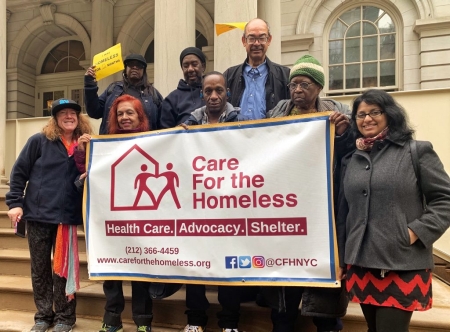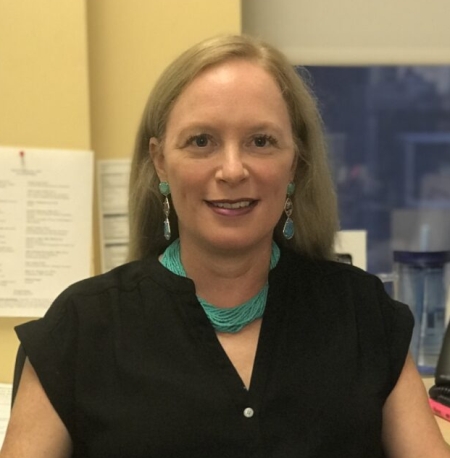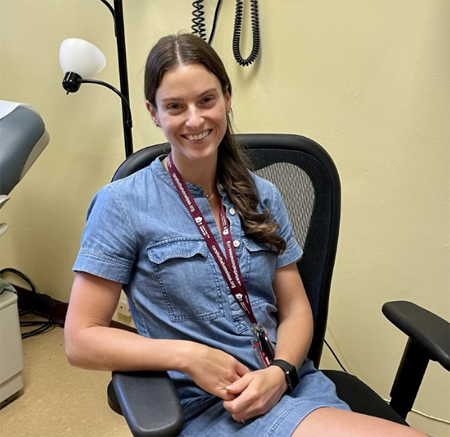
There are many, many homeless people in the U.S. nowadays: more than 580,000 people, according to a point-in-time survey conducted by Continuum of Care organizations in January 2020, just before the covid pandemic began. Although more than half of all homeless are found in the most populous states (California, New York, Florida, Texas, and Washington), there are people in all parts of the country experiencing homelessness. And the problem is getting worse.
Access to health care for the homeless is especially challenging. The struggle for food, clothing, and shelter generally takes priority over treatment. There are few clinics available beyond hospital emergency rooms. A lack of insurance, transportation, and even required identification puts care out of reach for many.
Care For the Homeless is a New York City organization that “fights homelessness by delivering high-quality and client-centered health care, human services and shelter to homeless individuals and families.” Founded in 1985, the organization treats more than 7600 patients a year at 27 health care locations throughout the five boroughs. Many of these treatment sites are located within facilities run by other non-profits, and others are community based.
CFH uses a patient-centered approach to care, with teams that treat the full patient, not just an illness. They provide primary care, dental, podiatry, and behavioral health services, which are offered without regard to ability to pay. Most importantly, they establish relationships and treat the whole person.
Below are excerpts from recent interviews with health care providers at CFH sites.
Dr. Erin Buettin

Dr. Erin Buettin works for CFH at the Franklin Women’s Assessment Center in the Morrisania neighborhood of the Bronx, where she evaluates the health care needs of the homeless women at the center. This needs more than simply reviewing their medical needs. It also requires communication and developing trust.
“I try to just turn the people I work with around and give them as much help at that point as I can,” observed Dr. Buettin. “Sometimes it seems like it’s not all medicine because it’s really also about trying to get to know them, so that they trust you enough to tell you where they are [physically and mentally].”
It’s necessary for providers like Dr. Buettin to address the traumas most of these women have faced.
“The traumas are so [significant],” Dr. Buettin observed. “I’ve seen people who’ve been sexually assaulted, and sex trafficked. One woman I saw was trafficked at age 5. So, the majority of the time is spent [with the women] talking.”
Read the full interview here.
Judith Coffey, NP

Ms. Coffey is a nurse practitioner at CFH’s Franklin Women’s Assessment Center, where she meets with homeless women during the three week evaluation period. It is a vital role, not only to conduct a medical examination, but also to build a trusting relationship that helps the women reveal the traumas and challenges they deal with.
“I feel like I’ve definitely connected with a lot of people... And gave them that space to feel like they’ve been heard and seen, and they’re not just another check in a box.”
She believes that seeing her brother receiving frequent treatment at Boston Children’s Hospital when he was very young inspired her to make a career in the medical field. She trained as a nurse and worked in traditional settings, including an ICU and a burn trauma unit. But she realized she wanted to work in preventative care and education.
“I think my passion very much is for women’s health,” Judith commented. “Because if you want healthy communities, you need healthy families. If want a healthy family, you need to start with the woman. She is the person who is invested in that, typically, the most. So, I think that education piece is even more important with underserved women.”
She described one especially significant encounter. She met with a young woman who was not showering during the evaluation period. Ms. Coffey spent an hour talking with her in the woman’s room.
“She was this beautiful, young girl and she said that she had been traumatized so much in her life. And that the reason she didn’t shower and tried to keep a low appearance was to really deflect all male attention from her. She would pull her hair out and she just wished she could be anything but a girl because it had given her such negative attention and trauma in her life.”
The woman reached out later to tell Ms. Coffey that she was doing well.
Read the full interview here.
